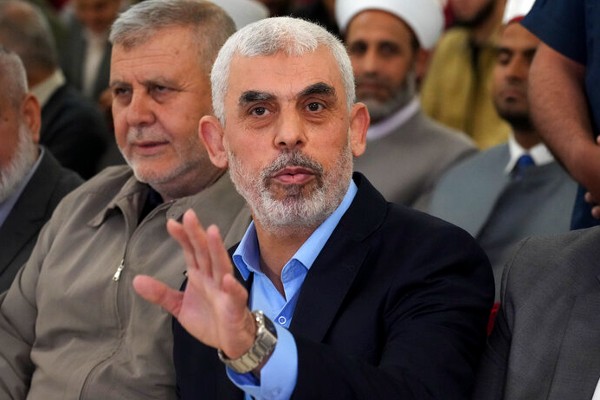Best known as the chief of Hamas forces in Gaza and mastermind of the October 7th invasion, Yahya Sinwar was arguably the Islamist terror group’s most radical leader.
By Baruch Yedid, TPS
Hamas leader Yahya Sinwar, who masterminded the October 7 attacks was killed in a chance encounter with Israeli soldiers in Rafah on Thursday.
Born in 1962 in the Khan Yunis refugee camp in Gaza, Sinwar grew up in a family that originated from Al Majdal, near Ashkelon.
He rose to prominence within Hamas from the group’s early days, co-founding its Majd unit, which targeted suspected collaborators with Israel.
Throughout his life, Sinwar was arrested multiple times and ultimately sentenced to five life terms for killing 12 Palestinians suspected of collaborating with Israel.
During his imprisonment, Israeli doctors removed a tumor from Sinwar’s brain in 2007, saving his life.
Sinwar’s fortunes changed in 2011 when he was among 1,027 security prisoners freed in the Gilad Shalit prisoner exchange. In the following years, his influence in Hamas grew. He traveled to Iran to meet with Qassem Soleimani of the Islamic Revolutionary Guards Corps, who coordinated the IRGC’s relationships with Iranian proxy terror groups. Sinwar, along with Salah Arouri were instrumental in bringing Hamas into Iran’s orbit.
By 2017, Sinwar became Hamas’s leader in Gaza.
Reports suggest that his decision-making was driven by concerns over Israel’s work on developing a laser-based air defense system.
On October 7, 2023, Hamas attacked numerous Israeli communities near the Gaza border. At least 1,200 people were killed, and 252 Israelis and foreigners were taken hostage.
But if Sinwar expected a wider war with the direct involvement of Iran’s other proxy terror groups, he was disappointed.
Hezbollah began firing rockets and launching drones at northern Israel communities on a daily basis, but never invaded the Galilee. Houthis attacked international shipping in the Red Sea, while numerous ballistic missiles and drones caused minimal damage.
Hamas leader Ismail Haniyeh was assassinated in Tehran, and Hezbollah leader Sheikh Hassan Nasrallah was killed in a Beirut airstrike.
And Iranian missile barrages in April and October failed to cause significant damage to Israel.
Israel made repeated attempts to target Sinwar. After a prisoner exchange in November, Sinwar rejected further negotiations unless Israeli guaranteed an end to the war.
Although he became Hamas supreme leader after Haniyeh’s death, he clashed with Hamas’s Qatar-based international leadership, barring them from engaging in any activities concerning Gaza’s post-war future, including talks with the Palestinian Authority.
With Israel’s elimination of other Hamas leaders in the past year, Sinwar’s brother Mohammed, is now viewed as the only senior Hamas figure leader remaining in Gaza.


